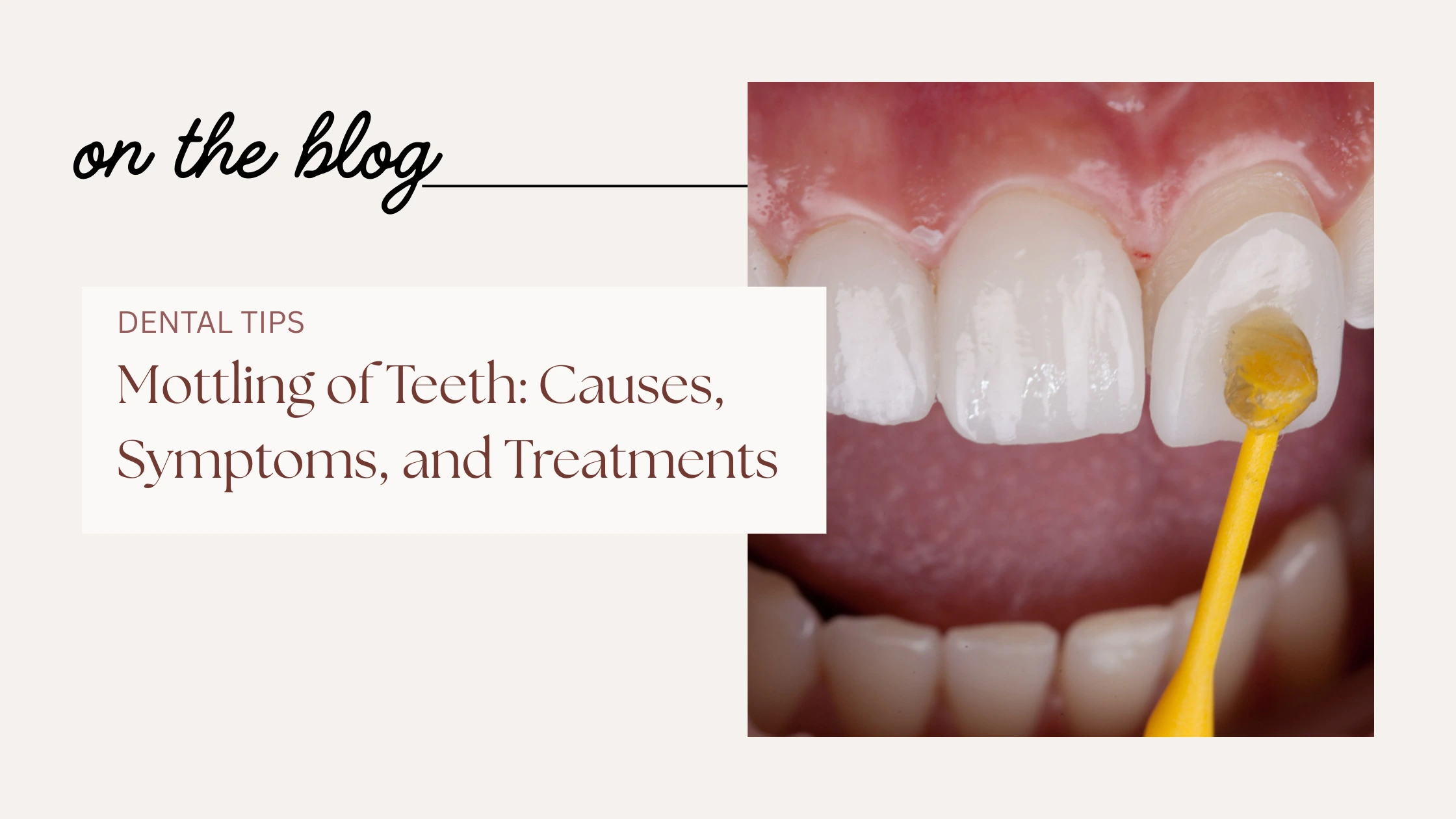
Mottling of teeth, often referred to as dental mottling, is the irregular discoloration or patches on the surface of teeth.
It appears as white, brown, or yellow spots or streaks on teeth.
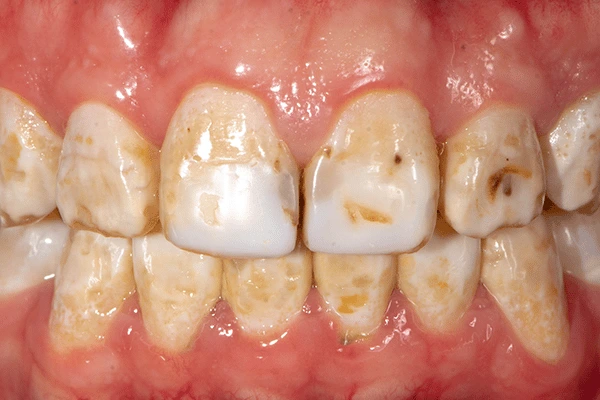
Appearance of white, yellow, or brown spots or streaks on the enamel layer of the teeth.
Enamel may exhibit roughness or uneven texture. Pits or depressions may also be noticed, and the glossiness of the surface is lost.
In moderate to severe cases, exposure of underlying dentin could cause increased sensitivity to temperature changes and certain foods.
Mottled teeth occur due to various factors that affect enamel development and mineralization. These causes range from excessive fluoride exposure to genetic conditions. Below are the most common reasons behind tooth mottling:
Dental fluorosis is one of the most common causes of mottled teeth. It occurs due to excessive fluoride intake during the development of teeth.
Excessive consumption of fluoride supplements, fluoridated water, or overuse of fluoride-containing toothpaste causes hypomineralization of the enamel layer, resulting in mottling of teeth.
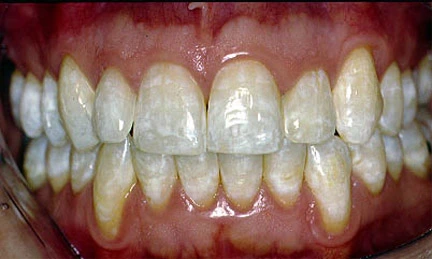
It is a condition in which the formation of enamel is incomplete or defective, which results in thin or underdeveloped enamel.
This is caused by nutritional deficiencies—a lack of essential vitamins and minerals weakens the enamel, certain illnesses and medications during the development of teeth, premature births, etc.
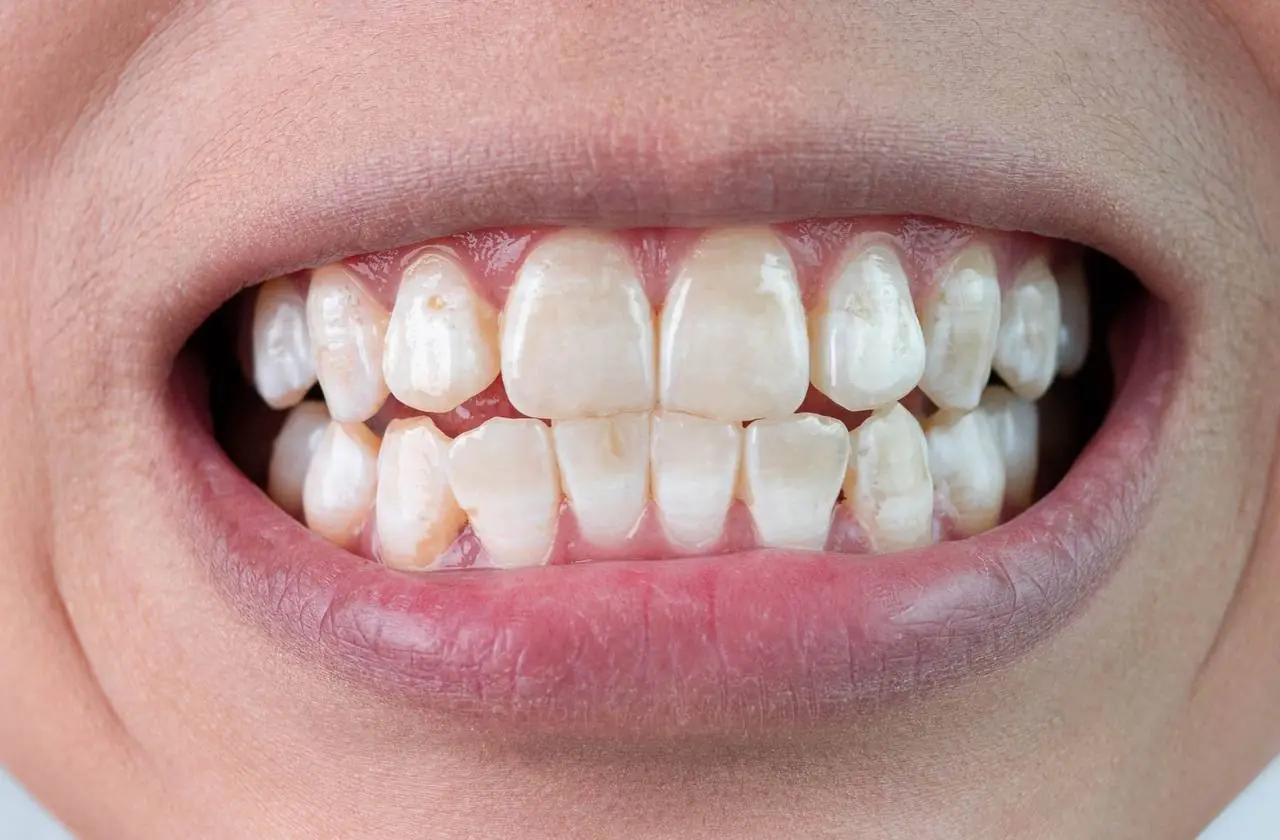
Infections, high fevers, or physical trauma during tooth development disrupt the formation of enamel.
If tetracycline antibiotics are taken by a pregnant mother or given to children during tooth development, it results in intrinsic staining of teeth, which appears as yellowish to brownish discoloration of teeth.
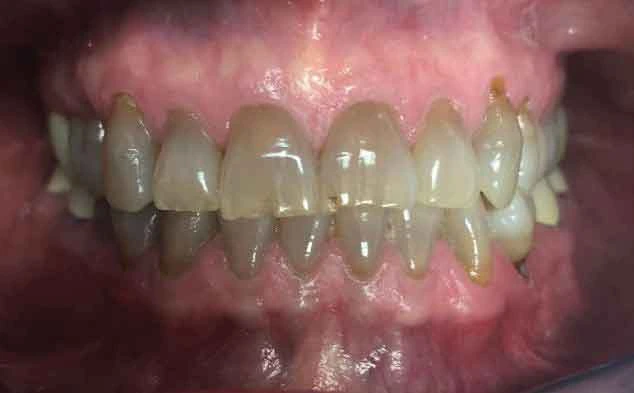
Conditions such as Amelogenesis Imperfecta (AI) cause problems with the formation of enamel, which results in mottled teeth.
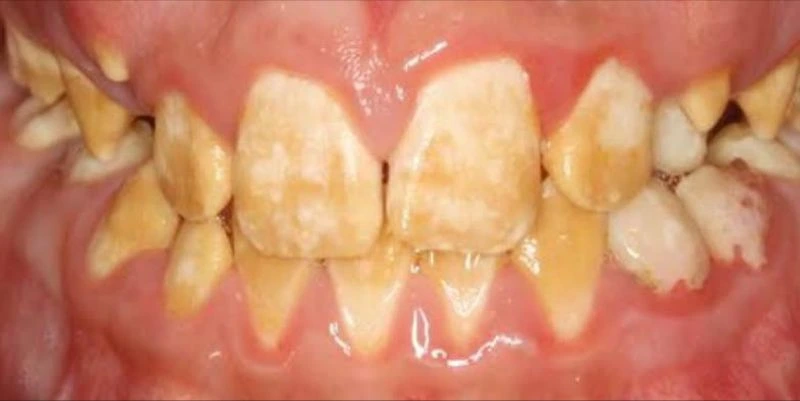
Consumption of acidic foods and beverages, exposure to environmental toxins, and poor oral hygiene may also result in damage to enamel and discoloration.
Mottled teeth not only impact aesthetics but can also lead to functional and structural issues over time. Depending on the severity, mottling can cause sensitivity, enamel weakness, and increased risk of cavities. Below are the key effects of mottled teeth on oral health:
The discoloration, surface irregularities, and weakened and porous enamel in mottled teeth affect the aesthetics, requiring cosmetic treatments.
In severe cases, mottling causes the enamel layer to wear off, which leads to exposure of underlying dentin and causes sensitivity when taking cold and hot foods.
Mottling of teeth results in weakening of enamel, which makes the teeth more prone to chipping and fractures. There is also an increased susceptibility to dental caries because of the compromised tooth structure and surface irregularities causing toothaches and sensitivity repetitively. Persistent discoloration increases aesthetic concerns and affects self-confidence and social interactions.
Functional issues like difficulty in chewing food and altered bite may also be noticed because of uneven wear resulting from weakened enamel.
Use a pea-sized amount of toothpaste for kids and ensure they do not ingest it. Monitor fluoride levels in drinking water.
A balanced diet rich in calcium helps to prevent mottling of teeth.
Regular dental checkups allow early detection and management of enamel mottling.
Encourage regular brushing, flossing, and use of a soft-bristled toothbrush and non-abrasive toothpaste to prevent enamel damage and any discoloration.
This procedure involves the removal of a thin layer of enamel, which reduces superficial spots and stains and improves the overall appearance of teeth. This is usually done in mild cases and may be accompanied by composite layering.
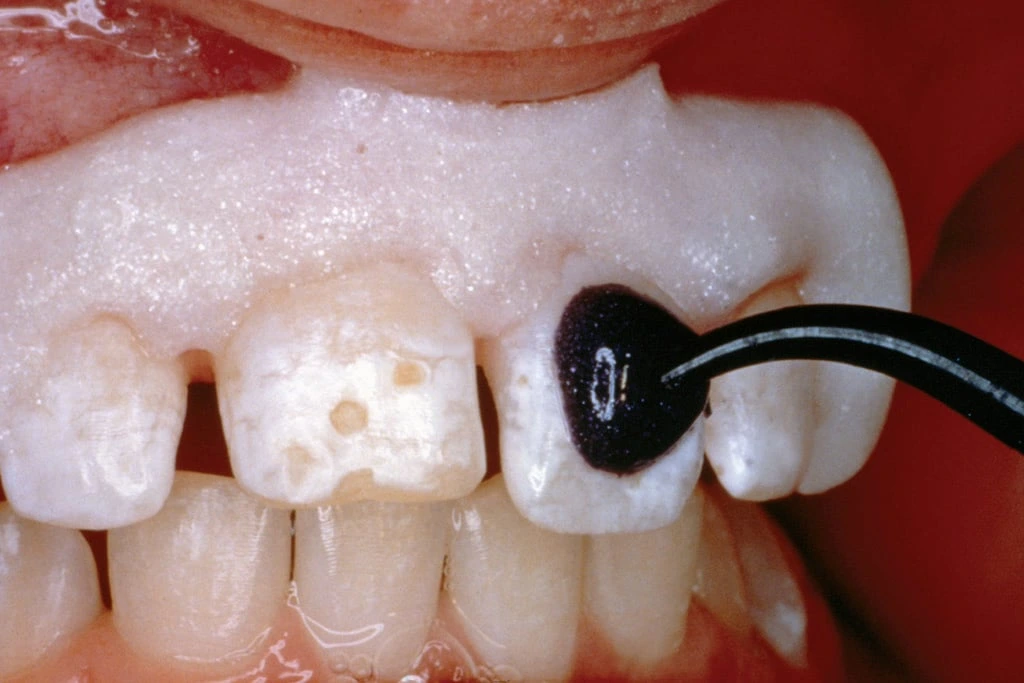
Professional bleaching of teeth helps to even out the color and reduce stains on the surface of the teeth. For mild cases of enamel mottling, topical fluoride treatments can help to remineralize the enamel.
A tooth-colored composite material is applied over the defects on the tooth surface. It may be used to cover the entire facial surface of the tooth in moderate to severe cases (Composite Veneers). The composite material is shaped according to the natural tooth, which enhances the overall esthetics. Ceramic veneers are thin shells of porcelain material that are bonded on the front surface of teeth to mask the stains and uneven surfaces. They cover the tooth surface with a protective layer, thereby improving both function and esthetics. They are usually done in moderate to severe cases of teeth mottling.
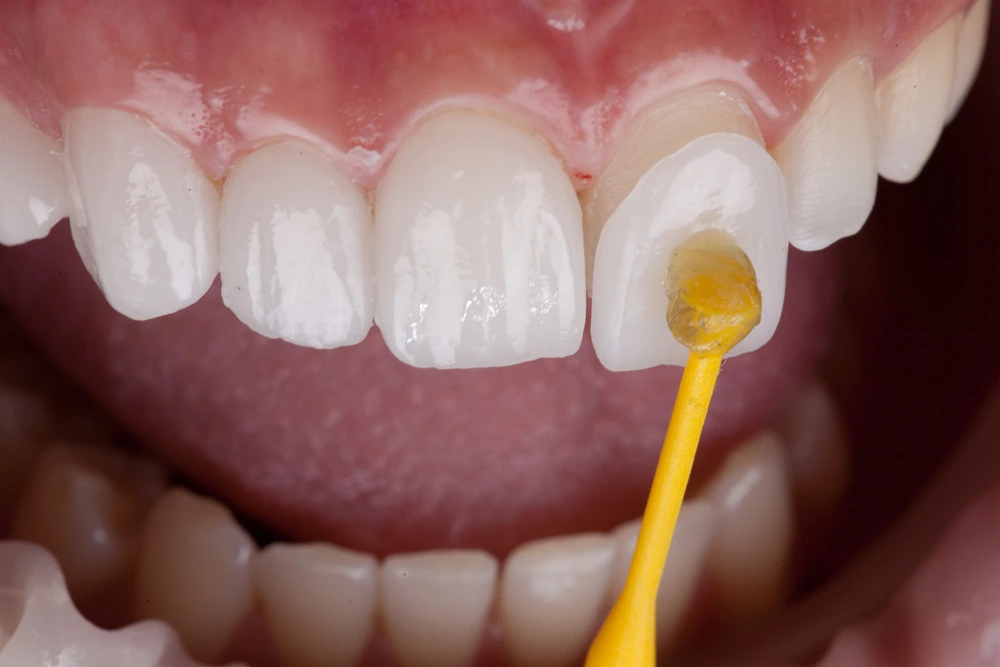
In severe cases of teeth mottling where the enamel layer is severely damaged, full crowns may be necessary. Crowns cover the entire tooth and provide protection and strength by improving the function and esthetics, enhancing the smile. Crowns are thicker than veneers and hence offer better coverage to severely mottled teeth.
In cases where a large number of teeth are widely affected by mottling, exhibiting altered vertical dimension and poor occlusal stability due to weak tooth structure, a combination of crowns, bridges, and veneers may be needed to reorganize the dentition. This is extensive treatment done by specialists, to restore your smile and confidence.
Mild cases of mottled teeth can be managed with proper treatment and good oral hygiene. However, complete reversal of mottled teeth may not always be possible and depends on the severity of the condition.
Mottled teeth are primarily a cosmetic concern and generally do not impact overall oral health. However, in severe cases, they may impair function, and may contribute to both oral and systemic health concerns.
Noticed discolored teeth? Visit your nearest Dhriti Dental branch (Nallagandla or Manikonda) now! We provide expert dental care with a personalized touch, ensuring a healthy and confident smile.
Schedule your dental appointment to keep your oral health at its best!